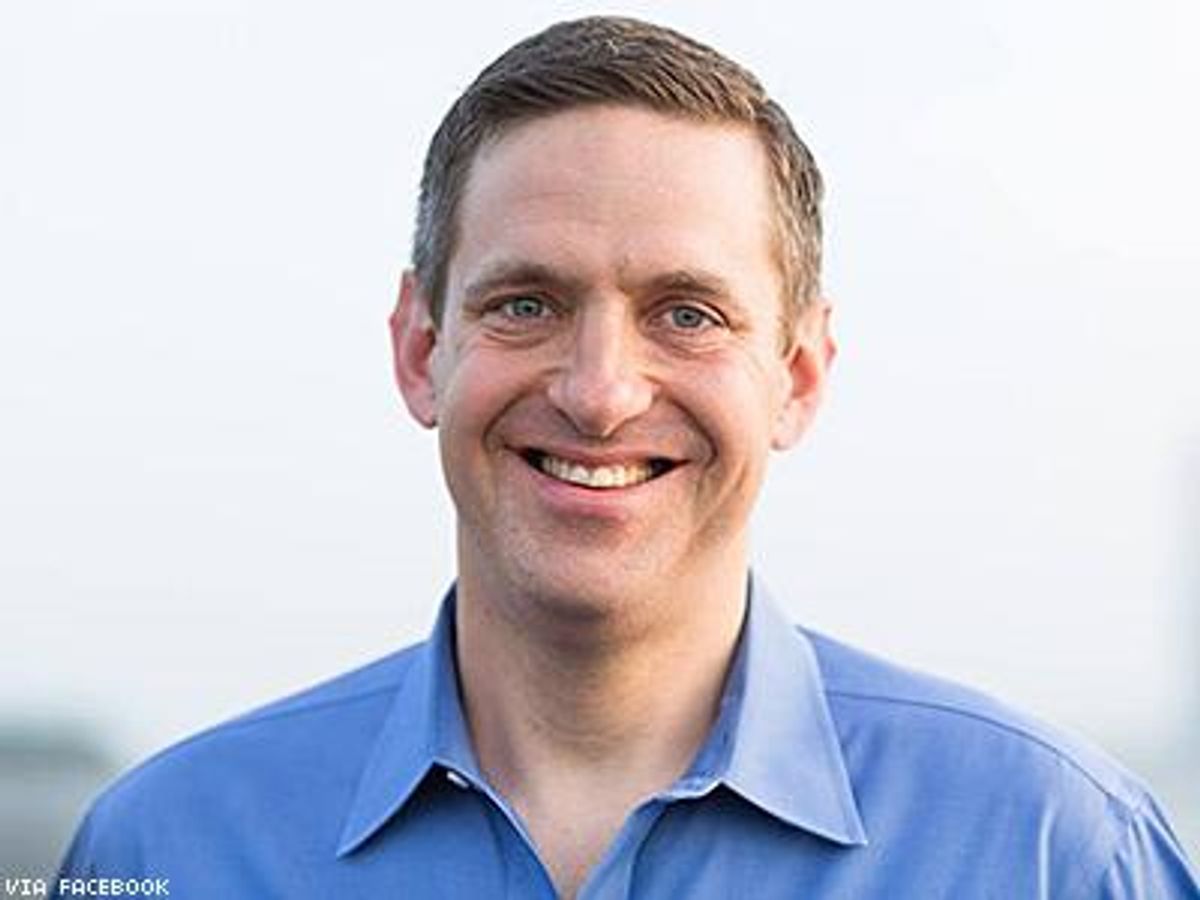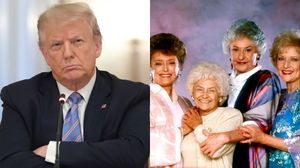 Marc Solomon started writing his book several victories ago.
Marc Solomon started writing his book several victories ago.
It was around 2007, and as the executive director of MassEquality, Solomon had won multiple major victories for marriage in Massachusetts. He figured he ought to write a book about how the state had become the first -- and then only -- to offer same-sex couples the freedom to marry.
"And then," he says, "things just started happening."
After several more years of work and 34 more states with marriage, Solomon's book is finally done. Winning Marriage provides an insider's look at the nuts and bolts of the last few years of the marriage equality fight. During that time, Solomon has moved from state campaigns to Freedom to Marry, where he travels the country to spread equality as the organization's national campaign director. Whenever a state wins marriage, there's a good chance that Solomon was among the many who made it happen.
During a Seattle stop of his book tour, Solomon reflected on all the recent wins, starting with New York. Prior to 2009, LGBT organizers had invested more than $1 million to flip the legislature to Democratic control. "Democratic leaders had promised they would pass a marriage bill, he says. "And they ... " he pauses. "Untruthed."
The Democratic-led New York legislature failed to pass a marriage bill in 2009, despite pledges to do so, he recalls. But the following vote, in 2011, was a success for two reasons: First, marriage advocates put together a political action committee to replace the legislators who had let them down; and second, Gov. Andrew Cuomo took a leadership role in shepherding the bill.
Solomon recounts one strategy meeting that Cuomo began by asking, "Do you mind if I bring my two closest advisors to the meeting?" Two of his young daughters entered. It was important to Cuomo that his children -- the granddaughters of Mario Cuomo and Bobby Kennedy -- have an opportunity to witness history being made, Solomon recalled.
Following that vote, four states had marriage on the ballot in the November 2012 election. "We wanted to win one, maybe two," Solomon said. "The idea of winning four ... that was pretty daunting, when we had never won one."
Indeed, until that point, the marriage movement had lost 33 ballot fights. Major donors were not interested in bankrolling what was seen as a losing strategy, and urged a focus on courts and legislatures instead. But a ballot victory was key to the movement, Solomon says, because it would mean an end to opponents' talking point that voters would always reject marriage equality.
 Ultimately, the equality side would triumph in all four states: Washington, Maryland, Minnesota, and Maine. Solomon credited those wins to the faith the campaigns placed in the grassroots -- the local organizers who were able to make personal appeals to lawmakers and to go door-to-door.
Ultimately, the equality side would triumph in all four states: Washington, Maryland, Minnesota, and Maine. Solomon credited those wins to the faith the campaigns placed in the grassroots -- the local organizers who were able to make personal appeals to lawmakers and to go door-to-door.
That work on the ground was successful thanks in part to a strategic rethinking after the 2008 passage of Proposition 8, which temporarily rescinded marriage equality in California. The "aha moment" was a poll done in Oregon, Solomon says. Straight voters were asked why they valued marriage; responses trended heavily toward "love." But when they were asked why gay people wanted to marry, responses trended heavily toward "I don't know" and "benefits." Suddenly, it was clear why voters had difficulty sympathizing with gay couples.
"We all grew up in a society where marriage was a man and a woman," Solomon says. Now marriage equality organizers would have to show voters that gay couples valued love just as highly as anyone else.
Freedom to Marry's director of research and messaging, Thalia Zepatos, took the lead on developing new outreach to voters. Her efforts were bolstered when President Obama endorsed marriage equality, which resulted in a surge of support among African-American voters.
Obama's evolution on marriage was thanks in part to some intense behind-the-scenes maneuvering, starting with the addition of marriage equality to the official Democratic Party platform. By adding it to the platform, organizers knew that the issue would come up at the 2012 convention and that Obama wouldn't want to be seen as fighting his own party on the matter.
As for the lessons learned from his work, Solomon has some words of advice for other social justice movements. "We don't have the answers to everything," he cautions. "You can't take what we did with marriage and superimpose onto guns and climate control."
But he does have a few top tips for developing a successful campaign. First, he says, you must develop an emotionally resonant message. "People need to be with your cause," he says. "It takes hard work to figure out the right message and the messenger." In other words, it isn't enough for a campaign to deliver facts -- it must provoke strong feelings.
Second, he says, "you need to be able to put points on the board. Wins beget wins beget wins." The marriage equality movement was careful to focus on winnable states so that it could demonstrate that success was possible.
Third, Solomon advises, bring in great talent and secure the resources to run campaigns to scale. That usually requires careful building of coalitions. For example, Washington United for Marriage was a coalition of 11 lead organizations and about 180 partner groups.
Fourth, when dealing with legislators, "knock out people who vote against you. Nothing gets the attention of a legislator like taking away one of their buddies' jobs."
And the fifth lesson might be the hardest of all. "Stick with it," he says, citing Evan Wolfson and Mary Bonauto as examples. Wolfson has been working on marriage since the early 1980s, when he wrote a thesis paper on what was then called "samesex" marriage. Bonauto has been pursing marriage through the courts since 1997.
It's a lesson that Solomon says he's clearly taken to heart. He started his marriage work as a volunteer in 2001 and has seen marriage equality change from a far-off dream to nearly national reality in less than a decade and a half. His book, which he wrote over years as the journey unfolded, is a tribute to sticking with it.


 Marc Solomon started writing his book several victories ago.
Marc Solomon started writing his book several victories ago.





























 Ultimately, the equality side would triumph in all four states: Washington, Maryland, Minnesota, and Maine. Solomon credited those wins to the faith the campaigns placed in the grassroots -- the local organizers who were able to make personal appeals to lawmakers and to go door-to-door.
Ultimately, the equality side would triumph in all four states: Washington, Maryland, Minnesota, and Maine. Solomon credited those wins to the faith the campaigns placed in the grassroots -- the local organizers who were able to make personal appeals to lawmakers and to go door-to-door.

















































